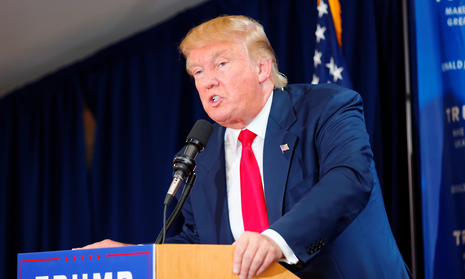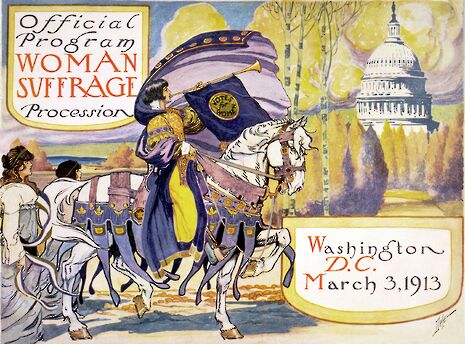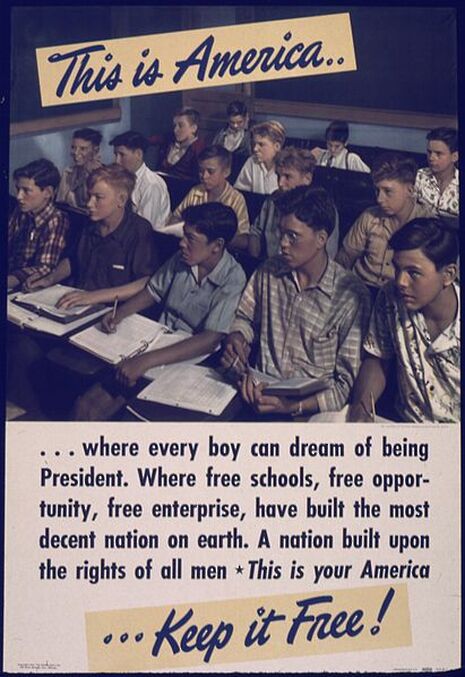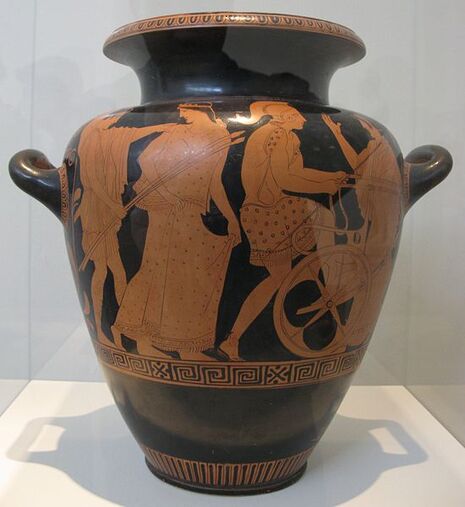
Practical Shitticism: President Trump’s inauguration speech
In her first Practical Shitticism column, Lily Lindon offers a close reading of the intricacies of a recent piece of political writing

Practical criticism aims to analyse a text based on style, form, and content, unhindered by its historical or cultural contexts. Today, I am going to perform a practical criticism of ‘President Trump’s inauguration speech, presented to America on 20th January 2017.’ As you can tell, I know nothing about who said it, where, when, or why. All I can know is that they have made a truly ‘great’ piece; all I can do is attempt to plumb the hidden bottoms of this evocative and sophisticated work; and all I can hope for is to channel the same muse that blessed this rarest of true poets.
It can sometimes be useful to use interpretive frameworks to find meaning in texts such as this one. One which seems particularly relevant here is a feminist lens: this simply means that we consider the way that women and feminised issues are treated, both overtly and subliminally. We are bombarded with feminist messages in this speech. Obviously, we are told outright by the speaker that the ‘women of our country will be forgotten no longer’. Yet this commitment to the rights of ladies permeates the whole of this word-poem: let us examine a seemingly random sentence:
“So to all Americans in every city near and far, small and large, from mountain to mountain, from ocean to ocean – hear these words – you will never be ignored again.”
The speaker is desperate to include all people, even specifying that they can be of any shape or size: personally, I am not sure whether I would rather be called a small American or a large one, but it’s lovely and inclusive gesture nonetheless. And the speaker is clearly well read in feminism and social change. Who could fail to notice the reference to Shannon Galpin’s book, Mountain to Mountain: A Journey of Adventure and Activism for the Women of Afghanistan? Certainly there is no sense of irony in the speaker’s insistence that they ‘hear’ his words while he is promising that their voices will be listened to: we can be in no doubt that those people who have historically had the least voice in society will indeed ‘never be ignored again’.

But, of course, one must not base all of one’s conceptions of one text on one well-chosen reference (though I would argue that you would be hard-pressed to find a better description of this speech than ‘well-read, feminism, and social change’). Let’s look at another less-than-140-character sample:
“We stand at the birth of a new millennium, ready to unlock the mysteries of space, to free the earth from the miseries of disease, to harvest the energies, industries and technologies of tomorrow.”

I do not wish to insult my reader’s intelligence, but, for the sake of my argument, I must point out the obvious subliminal message here. If you are to take several words out of this quote, and then rearrange the remaining ones, you find this barely hidden meaning: ‘free birth technologies ready, unlock the new millennium from the miseries of mysteries’. This cannot be mere coincidence. Clearly this speaker has a clear pro-choice agenda, wanting all women the ability to access free information and equipment in deciding whether to become a parent. Indeed, using this message as a central guide, I would go so far as to say that ‘choice’ is the defining characteristic of this speech. Dull-minded critics might point out that the imperative and non-negotiable couplet ‘we will’ is repeated over 20 times in the space of 1,450 words, and that the speaker insistently groups ‘all people’ into the same, blanket ‘American destiny’. However, these idiots fail to notice the one mention of ‘glorious freedoms’ which certainly overrides these other minutiae and leaves the listener feeling completely liberated. Who could hear this speech without feeling hopeful about how they will use ‘the technologies of tomorrow’?
Indeed, increased access to information is of vital significance to the poet. They condemn:
“An education system flushed with cash, but which leaves our young and beautiful students deprived of all knowledge.”
Certainly the speaker has high ideals here, of somehow being able to give students ‘all knowledge’ – I don’t personally know many education systems which are able to bequeath literal omniscience. Yet in the perceived ignorant attractiveness of the students, the speaker is surely making reference to the enigmatic Keats poem, ‘Ode on a Grecian Urn’. Ventriloquising the eponymous piece of pottery, Keats writes that “beauty is truth, truth beauty, – that is all / Ye know on earth, and all ye need to know”. By reminding the listener of Keats here, the speaker is comfortingly proving their own pursuit of ‘the truth’, both for themselves and all Americans. “The Truth might not be present in the education system at the moment”, they seem to say, “but I am going to ensure that its there as much as possible from henceforth.”

Some might say it is an unusual and slightly perplexing choice to call the young students in your speech ‘beautiful’. If you were, for example, Donald Trump, the newly elected President of the United States of America, you would certainly avoid using this word to describe young people. After all, his highly dubious and sexualised descriptions of his own daughter, coupled with his infamous and terrifying boasts about sexual abuse (within which he said that he is ‘automatically attracted to beautiful’), would mean that this adjective would definitely be best avoided. Out of any normal person’s mouth, however, these words are hardly be worth comment.
Well, quite frankly, that is ‘all ye need to know’ about this speech. As a young and beautiful student of practical criticism, you can see how useful it is when you don’t have to worry about ‘facts’ getting in the way of your own interpretation. After all, meaning is flexible, and there are always alternative truths for those who wish to look for them. How reassuring, to think that because words are ambiguous, you cannot lie. You could argue – facetiously – that everything in this speech is able to be read incredible ironically. You could even argue that everything I have written about this speech was utterly irrelevant and completely wrong. But I would merely quote the magnificent poet back at you. I would advise that you practise what he preaches. After all, ‘the time for empty talk’ is (clearly) ‘over’.
